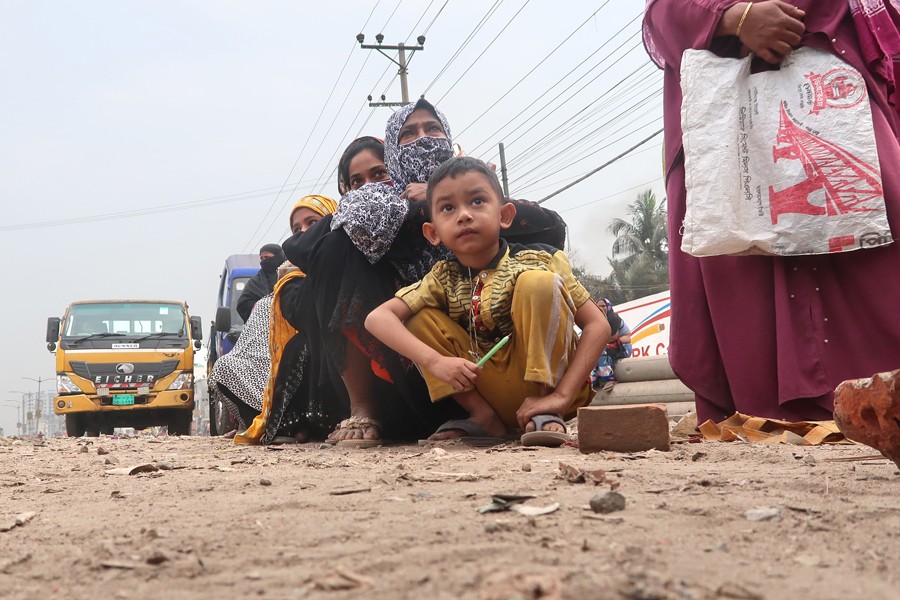
Published :
Updated :

Poverty, food insecurity, and malnourishment are persistent problems for millions of low and middle-income families in Bangladesh. In recent years, the situation has worsened further for people living below the poverty line due to the skyrocketing prices of food. The worst victims, as is always the case in crunch times, are the innocent and vulnerable children. According to a recent UNICEF report, two out of every three children aged under five in Bangladesh are living in poverty. This means that 10 million Bangladeshi children consume fewer than the minimum five food groups recommended by the UNICEF and the WHO for adequate nutrition. It also ranked Bangladesh among the 20 countries that account for almost two-thirds (65 per cent) of the total number of children experiencing severe child food poverty globally. This dubious distinction, coupled with the lack of purchasing power, should be a wake-up call to the government and citizens alike.
Childhood malnutrition has severe lifelong consequences for a child. As the UNICEF report emphatically illustrates, children deprived of proper nutrition in their early years perform poorly in school, their development is impaired, they, earn less as adults, and remain stuck in a cycle of poverty, deprivation, and despair. The lack of proper dietary diversity increases a child's risk of literally wasting away by up to 50 per cent. Overall, good nutrition is fundamental to children's health, growth, development, indeed, survival. Families are expected to play a leading, indeed crucial role in providing their children with nutritious food. Impoverished families, however, find it difficult and cannot shoulder the responsibility alone. The UNICEF calls for supporting them through a systematic approach, leveraging the potential of food, health and social protection systems and driven by a decisive political will and targeted investment.
Food insecurity isn't just about food scarcity. In Bangladesh, the biggest barriers to food security are the unaffordability caused by social inequality and difficulty to manage food due to inflation. Job losses during the Covid-19 pandemic and subsequent economic stagnation have exacerbated the problem. The double-digit food inflation for the past two years has also had an enormous impact and left more households food-insecure. The gravity of the situation can be assessed just by observing the long queues of people at open-market sale (OMS) trucks run by the Bangladesh Trading Corporation (TCB). To help alleviate the sufferings of low-income people the government has substantially increased and widened the OMS programme. But the war against poverty is far serious and cannot be won by just providing a few food items at subsidised rates. This is like cosmetic surgery when the need is invasive operation.
Achieving food security for all Bangladeshis demands a no-nonsense multi-pronged approach from the government. This includes revamping the marketing of agricultural products to ensure fair prices for growers, protecting the supply chain from extortion, monitoring markets to check manipulation, implementing systematic measures to curb record-high food inflation, and tackling poverty through creation of employment. Encouraging private investment, particularly in agro-based industries, and financially empowering women would further strengthen this strategy. Besides, implementing school feeding programme for underprivileged children can reduce the malnutrition problem of poor children. The UNICEF says that by transforming food systems into healthy diets that are accessible and affordable, Bangladesh can ensure that every child has a solid start in life.


 For all latest news, follow The Financial Express Google News channel.
For all latest news, follow The Financial Express Google News channel.